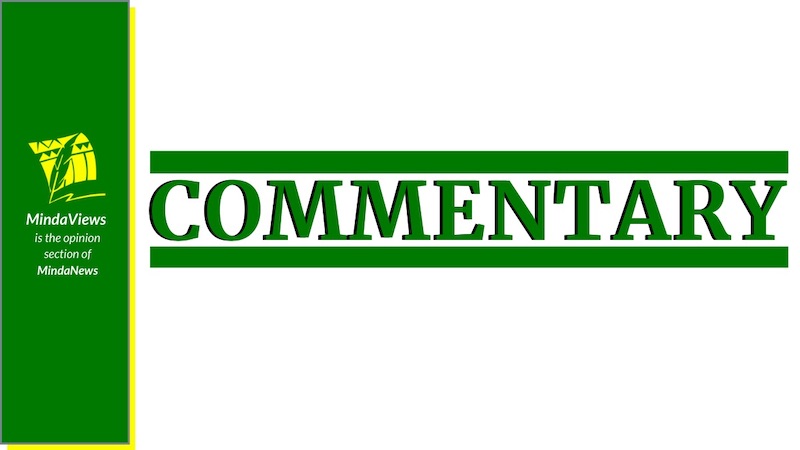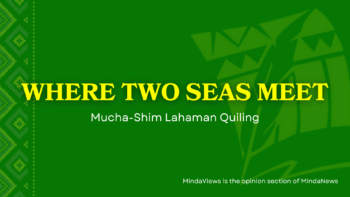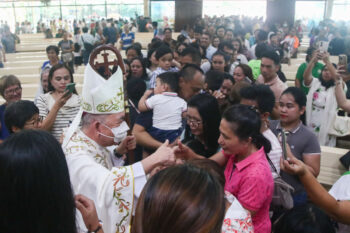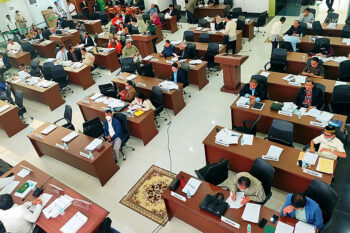
Highlighting Successful Initiatives and Programs for National Unity
The Filipinos are well known for the concept of Bayanihan, and many of these best practices have always highlighted a whole of community approach to addressing and unifying our communities. While we seek to create a unifying mindset and narrative, one of the best efforts and moves would be to show the Filipinos a common thread where we have always been good at successful collaborative initiatives that has been successful both through community-led and community-driven initiatives.
Several successful initiatives and programs have already made significant contributions to national unity in the Philippines. Some examples include:
Gawad Kalinga: Gawad Kalinga is a movement that focuses on poverty alleviation and community-building. They have successfully engaged communities in various projects, such as building homes, establishing livelihood programs, and promoting values formation. Through their efforts, they have brought people together and fostered a sense of shared responsibility for community development.
Bangsamoro Organic Law: The enactment of the Bangsamoro Organic Law in 2018 marked a significant milestone in promoting peace and unity in Mindanao. The law established the Bangsamoro Autonomous Region, providing self-governance and addressing historical grievances. It is an example of how inclusive policies can promote unity and address the diverse needs of different regions.
Youth Leadership and Empowerment Programs: Numerous youth-focused organizations and programs in the Philippines aim to empower young people to become active agents of positive change. These initiatives provide platforms for leadership development, community engagement, and advocacy, enabling young Filipinos to contribute to national unity.
National Arts and Culture Initiatives: Arts and culture play a vital role in promoting national unity and identity. Festivals, cultural events, and initiatives that celebrate Filipino heritage and diversity create opportunities for dialogue, understanding, and appreciation of different cultures within the country.
These successful initiatives demonstrate the power of collective action, community engagement, and inclusive policies in fostering national unity. By learning from these examples and scaling up similar programs, the Philippines can continue to strengthen the new Bayanihan spirit and work towards a united and prosperous nation.
Potential Challenges and Obstacles to Achieving National Unity
Implementing the Bayanihan ideology and fostering national unity may face several challenges and obstacles:
Historical Divisions: The Philippines has a complex history marked by regional, ethnic, and religious differences. Historical divisions, conflicts, and unresolved issues can hinder efforts towards unity and cooperation.
Socioeconomic Disparities: Socioeconomic inequalities and disparities pose significant challenges to achieving national unity. The unequal distribution of wealth, limited access to opportunities, and poverty can create divisions and hinder collective action.
Political Polarization: Political divisions and polarization can hinder efforts towards national unity. When political affiliations take precedence over the collective interest, it becomes challenging to foster cooperation and common goals.
Lack of Awareness and Education: Limited knowledge and awareness about Filipino culture, history, and values can impede the development of a shared national identity. Without a deep understanding of their roots and heritage, individuals may struggle to connect and work towards common objectives.
Inclusivity and Marginalized Groups: Ensuring inclusivity and representation of marginalized groups—such as indigenous communities, religious minorities, and other groups that identify towards self-ascription as a marginalized community—is crucial for national unity. Exclusion and discrimination can undermine efforts toward collective progress.
Addressing Challenges and Overcoming Obstacles
Education and Awareness: Promote education and awareness programs that highlight the importance of national unity, cultural diversity, and the significance of the Bayanihan spirit. Integrate inclusive and comprehensive history and values education in school curricula to foster a sense of shared identity.
Dialogue, Reconciliation and Restorative Justice: Encourage open and respectful dialogue to address historical divisions and promote reconciliation. Platforms for intercultural and interfaith dialogue can bridge gaps and promote understanding among different groups. Moves such as encouragement of the Transitional Justice mechanisms to ensure restorative justice has been done for the centuries of oppression against marginalized cultural communities throughout the country.
Economic and Social Justice: Address socioeconomic disparities by implementing policies that promote economic and social justice. Ensure equitable access to education, healthcare, livelihood opportunities, and infrastructure development to reduce inequalities.
Political Reforms: Promote political reforms that prioritize the common good over personal or partisan interests. Enhance transparency, accountability, and inclusivity in governance processes to build trust and promote unity.
Empowerment and Participation: Empower marginalized groups by providing them with equal opportunities and representation. Ensure their voices are heard in decision-making processes and policy formulation to foster a sense of ownership and inclusion.
The Importance of Resilience and Perseverance
In the face of challenges and obstacles, resilience and perseverance are crucial. National unity is a long-term endeavor that requires collective efforts and a commitment to overcoming adversity.
Resilience enables individuals and communities to bounce back from setbacks and learn from experiences. It involves adapting to changing circumstances, finding innovative solutions, and remaining steadfast in the pursuit of national unity.
Perseverance is the determination to continue working towards the goal of national unity despite obstacles. It requires individuals to remain focused on the larger vision, maintain optimism, and not be discouraged by temporary setbacks.
Resilience and perseverance, coupled with the values and principles emphasized in the Bayanihan ideology, can inspire individuals and communities to overcome challenges and contribute to the progress of the Philippines. By staying resilient and persevering in the face of adversity, the new Bayanihan spirit can be strengthened and national unity can be achieved.
To cap it gracefully,
In summary, this discussions explored various aspects of Filipino culture, values, and historical documents such as the Kartilya ng Katipunan and Bonifacio’s Decalogue. We discussed the significance of these documents in Philippine history and the core principles and values they emphasize. Furthermore, we delved into Jef Menguin’s list of 30 Filipino values, exploring how these values can shape the Bayanihan spirit and contribute to national unity. We also examined the concept of the “new” Bayanihan spirit and ideology, highlighting its differences from traditional notions and emphasizing the role of inclusivity, diversity, and respect for all. Additionally, we provided strategies for fostering national unity, including practical steps, the importance of education and civic participation, and highlighted successful initiatives that have contributed to national unity.
The importance of the new Bayanihan spirit and ideology for national unity cannot be overstated. It serves as a guiding principle that promotes cooperation, empathy, and collective action towards the common good. The values and principles emphasized in the Kartilya ng Katipunan, Bonifacio’s Decalogue, and Jef Menguin’s list of Filipino values provide a strong foundation for fostering a sense of unity and purpose among Filipinos. By embracing these values, we can transcend divisions and work towards a more inclusive and prosperous society.
The core elements of the New Bayanihan framework can be summarized as follows:
- Inclusivity and Diversity: The New Bayanihan Ideology emphasizes the importance of inclusivity and respect for diversity. It recognizes that unity can only be achieved when all individuals, regardless of their background, are valued and included in the collective efforts towards progress and development.
- Cooperation and Collaboration: The New Bayanihan Ideology promotes a spirit of cooperation and collaboration among Filipinos. It encourages individuals and communities to work together, pooling their resources, talents, and efforts to address societal challenges and achieve common goals.
- Shared Responsibility: The New Bayanihan Ideology recognizes that every Filipino has a role and responsibility in nation-building. It emphasizes the need for individuals to actively contribute to their communities and society as a whole, whether through volunteerism, civic engagement, or other forms of active participation.
- Social Justice and Empathy: The New Bayanihan Ideology places a strong emphasis on social justice and empathy. It calls for a society where fairness, equality, and compassion are fundamental principles. It encourages individuals to understand and empathize with the struggles and needs of others, fostering a sense of solidarity and collective care.
- Integrity and Moral Uprightness: The New Bayanihan Ideology values integrity and moral uprightness as guiding principles. It emphasizes the importance of honesty, transparency, and ethical behavior in all aspects of life, including governance, business, and personal conduct.
- Resilience and Perseverance: The New Bayanihan Ideology recognizes the challenges and obstacles that may arise in the pursuit of national unity and progress. It calls for resilience and perseverance in the face of adversity, encouraging individuals to remain steadfast in their commitment to building a stronger and more united Philippines.
However, achieving national unity requires more than just understanding and appreciating these principles. It necessitates collective action and commitment from individuals, communities, and institutions. It calls for a shared vision and a willingness to set aside personal interests in favor of the greater good. It requires us to actively engage in initiatives that promote inclusivity, diversity, and respect for all. Education, community engagement, and civic participation play vital roles in nurturing the new Bayanihan spirit and ideology.
Let us stand together as Filipinos, united in our diversity, and work towards building a stronger and more united Philippines. It is through our collective efforts, resilience, and commitment that we can overcome challenges, address obstacles, and foster a society rooted in the values of compassion, integrity, and social justice. Let the new Bayanihan spirit guide our actions and inspire us to create a better future for generations to come. Together, let us forge a path towards national unity, progress, and lasting peace.
(MindaViews is the opinion section of MindaNews. Prof. Dato Yusuf Roque Santos Morales, Ph.D. is a convener of the Consortium of Peacebuilders, Governance Developmental Security Studies. He was a Commissioner at the National Commission on Muslim Filipinos from 2016 to 2020 and in the same period was Subject Matter Expert and practitioner on Preventing and Countering Violent Extremism of the Anti-Terrorism Council of the Office of the President.)






